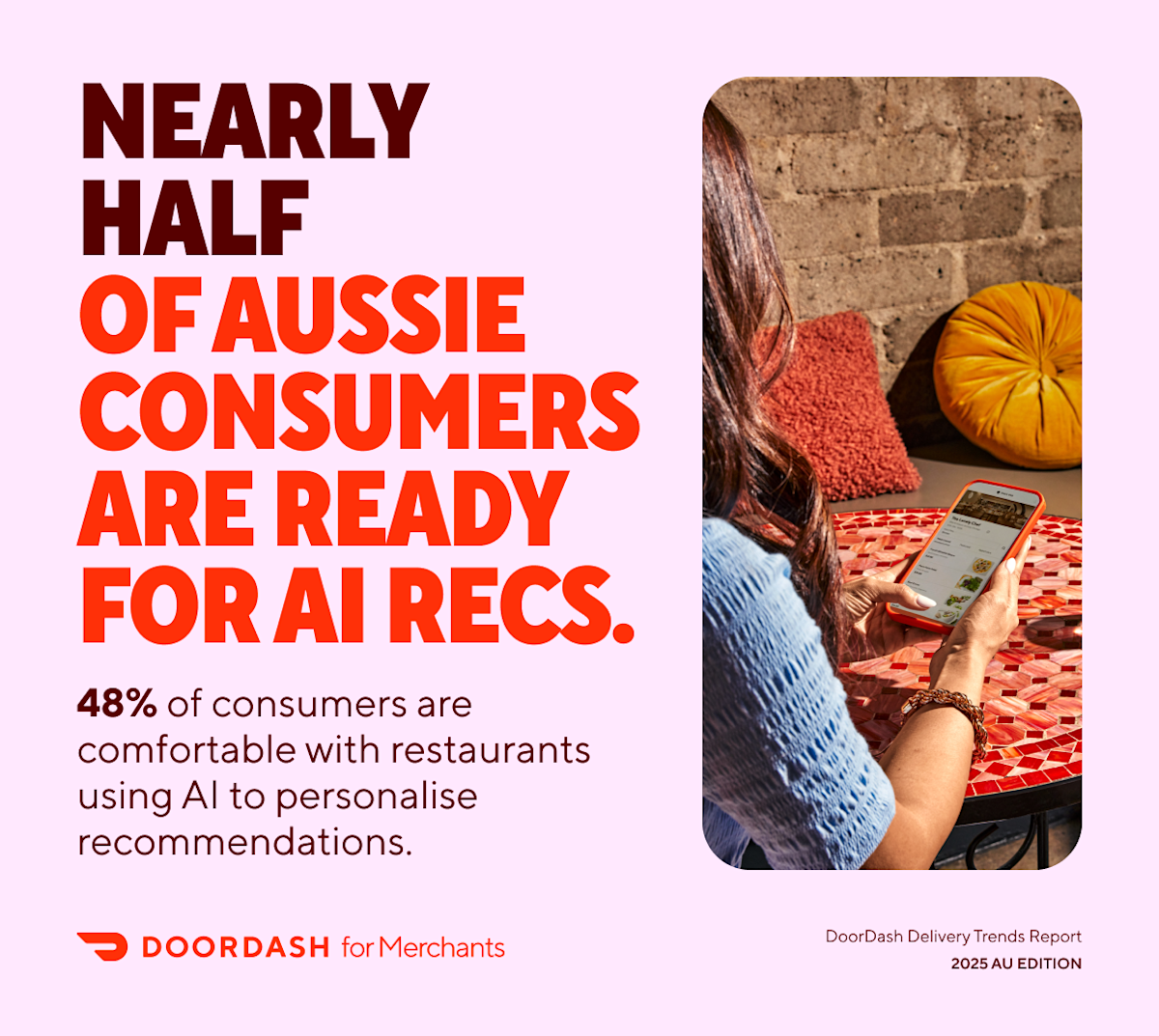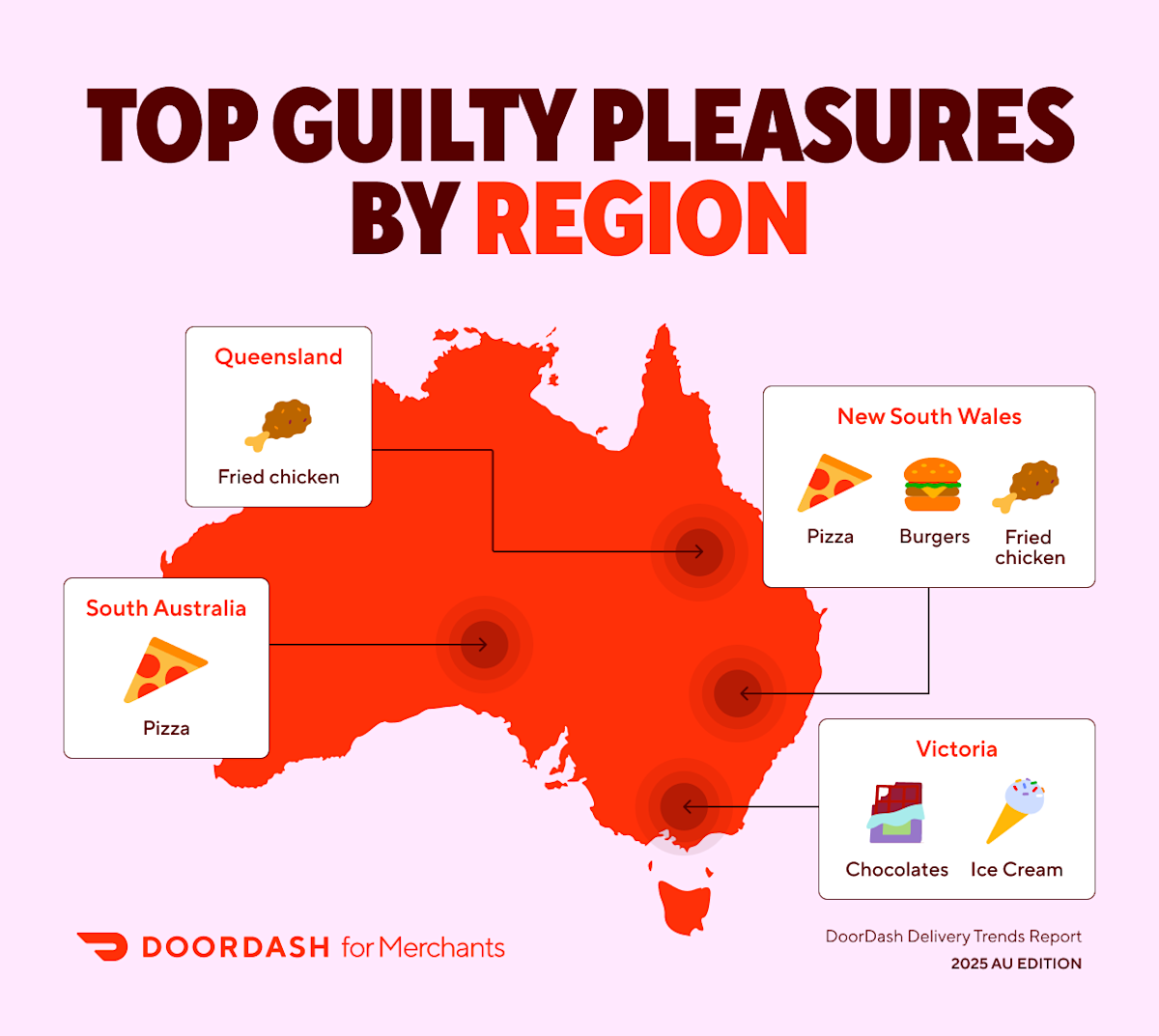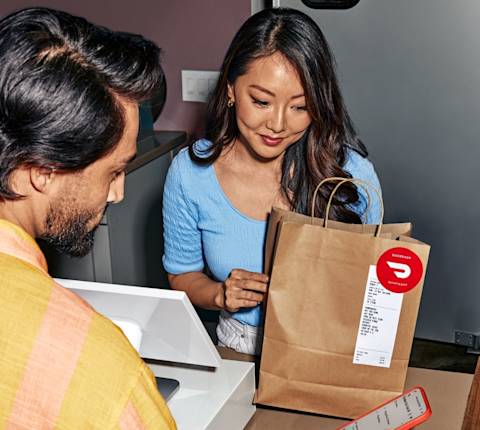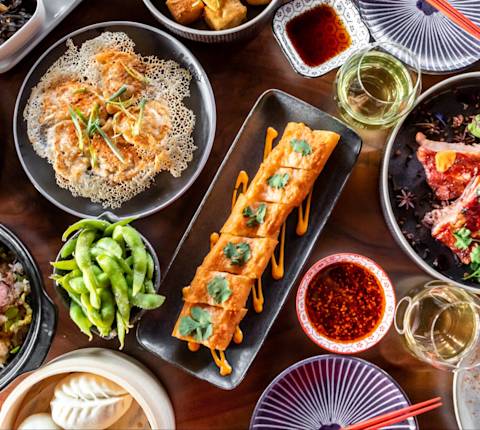The 2025 DoorDash Delivery Trends Report features insights from a survey of 1,012 consumers across Australia, plus aggregate data from DoorDash. Every year, DoorDash takes an in-depth look at how consumer habits are changing and what they care about most when ordering food and alcohol for delivery.
In this article, you'll learn the latest restaurant and alcohol delivery trends, with answers to these questions and more:
What drives Aussie consumers to go from browsing to ordering?
How do restaurant online ordering habits differ by generation, region, and gender?
What do diners think about AI in the dining experience?
How is the no-alcohol trend impacting beverage preferences?
Read on for the top ten takeaways from the 2025 analysis, and learn how to apply these insights to your restaurant to provide a positive experience for today's guests.
Top 10 food delivery trends in 2025
Two major themes from this year's survey are comfort and self-care. We found that most people order delivery food to satisfy cravings and as a form of self-care, and many of the top-ordered foods on DoorDash are classic comfort foods.
Social media plays a big part of restaurant discovery, too, with most consumers reporting that they’ve ordered a viral food item they saw on social media.
And with the proliferation of AI tools for consumers, like AI-assisted shopping and customer service chatbots, we asked about how folks feel about AI in the restaurant industry.
Here are the biggest takeaways from the 2025 DoorDash Delivery Trends Report.

1. Diners want robot-driven restaurant recs, but they’re not sure about AI in the kitchen
48% of consumers are comfortable with restaurants or third-party apps using AI to provide personalised recommendations, like suggested meals or new places to order from. Millennials are the most likely to be cool with this — with 56% saying they’re open to it.
But only 14% of consumers fully trust AI tools like robotic cooks or automated food assembly systems to prepare or cook their meals. Interestingly, men are 3X more likely than women to fully trust AI systems in the kitchen.
2. Social media keeps influencing dining decisions
In 2025, the top social media channels consumers use to discover new restaurants are Facebook (21%), Instagram (17%), YouTube (16%), and TikTok (14%).
Among different age groups, Gen Zers over-index on usage of Facebook (25%), YouTube (21%), TikTok (20%), and Instagram (20%) for restaurant discovery compared to other age groups. Facebook (23%) and Instagram (21%) are most popular with Millennials, and Gen Xers and Baby Boomers strongly prefer Facebook over any other platform.
And for younger consumers, the majority of Gen Zers (77%) and Millennials (61%) trust reviews from restaurant influencers, compared to only 35% of Gen Xers and 24% of Baby Boomers. Interested in jumpstarting your influencer strategy? Check out our Influencer Marketing Guide for Restaurants.
3. Viral foods are driving purchases
More than half of Aussies (53%) have ordered a trending restaurant item from social media for delivery. People have a strong desire to see what the hype of items like matcha-swirled croissants, pistachio cocktails, açai bowls, and other viral foods and drinks are really like.
Gen Zers (84%) and Millennials (63%) are even more likely to have tried a viral item — and since they’re so active on social media, they can serve as a great way to spread the word about your business online.
4. Younger generations are leading the charge on sustainable dining
87% of consumers consider sustainability and ethical sourcing important when deciding on where to dine out. Sustainability is especially important to Gen Zers (95%) and Millennials (91%). But Gen Xers are nearly 70% more likely — and Baby Boomers over 50% more likely — than the general population to say sustainability is ‘not at all important.’
The top restaurant sustainability practices Aussies care about are:
Locally sourced ingredients: 39%
Eco-friendly packaging: 31%
Food waste reduction: 31%
Minimising single-use plastics: 25%
Ethical labor practices: 24%
Restaurant owners can consider tackling small changes, like using eco-friendly takeout packaging or sourcing more local and organic ingredients, and seeing how your customers respond. Then, ramp up your efforts and highlight your sustainability practices across your website, menu, and social media to attract values-driven diners.
DoorDash partnered with BioPak, a sustainable packaging company to give restaurants across South Australia and Western Australia advantaged pricing on certified recycled packaging products. DoorDash merchant partners can browse and purchase Biopak's plant-based, compostable, and B-Corp certified products at doordash.biopak.com.
5. Comfort food clicks with cravings-driven consumers
91% of consumers (yep, 91%!) have ordered food delivery to satisfy a craving. Sometimes, you just need hot chips with chicken salt from that spot around the corner.
And of the top 10 foods ordered on DoorDash in Australia 2024, many are comfort foods:
Chips
Garlic naan
Butter chicken
Potato cakes / potato scallops
Special fried rice
Garlic bread
Pad thai
Dim sum
Steamed rice
Honey chicken

When we asked about guilty pleasures, check out what items these regions over-index on compared to the general population:
South Australia
PastaVictoria
Chocolates, ice creamQueensland
Fast food chickenNew South Wales
Pizza, burgers, fried chicken
6. Ordering in is now a form of self-care
Nearly 3 in 4 consumers (73%) think of ordering delivery as an act of self-care at least sometimes. Whether it’s after a tough day at work, busy day with the kiddos, or to celebrate a personal milestone, getting your favourite meal delivered to your doorstep is usually a "yes."
7. Repeat restaurant delivery orders (and multi-order days) have become a habit
Consumers are ordering food delivery a lot, and sometimes that means more than once a day. Nearly one-third of consumers (27%) — and 41% of Gen Z — have ordered food delivery 3+ times in a single 24-hour period. When does convenience turn into obsession? We’re not ones to judge.
And on the theme of convenience, 48% of Aussies place repeat orders at least weekly, with Gen Zers (67%) and parents (53%) the most likely to reorder that often — some even daily.
8. Diners prefer the convenience and ease of use of third-party apps for online ordering
48% of consumers prefer ordering out via third-party apps and websites. Why? 42% say they’re easier to use, 36% say they’re more convenient, and 26% say they’re more familiar.
On average, consumers order food delivery from third-party apps 4.2 times each month; for Gen Zers, that increases to 5.7 orders monthly.
After third-party apps, restaurant websites are the second-most preferred online ordering channel. Restaurant owners can use DoorDash Online Ordering to set up simple, commission-free online ordering directly on their own website.
9. Meal decisions happen quickly, and often last-minute
Nearly half of consumers (43%) take 5-10 minutes to make a decision about what delivery food to order, and 71% have ordered delivery last-minute in the past month. Folks are comfortable with online ordering and are able to quickly make their dining choices.
Restaurant operators — optimise your delivery app listing to make your menu easy to scroll through. Use photos, highlight best-sellers, and create easy-to-skim categories to help customers make faster decisions.
10. The sober curious movement is gaining steam
Low- and non-alcoholic drinks are becoming more popular — 75% of Australians who order alcohol for delivery have ordered low- or non-alcoholic beverages in the past six months. For Gen Z, that jumps to a whopping 93%.
Consider expanding your non-alcoholic beverage offerings, like zero-proof beers and creative mocktails, to cater to sober curious customers.
Set up your restaurant business for success in the year ahead
Ramp up your online presence to reach more customers in 2025 and beyond. Explore DoorDash Merchant solutions designed specifically for restaurants and join 550,000+ restaurants globally growing with DoorDash.
Must be 18+ to order alcohol. Drink responsibly. Alcohol delivery available only in select markets.



